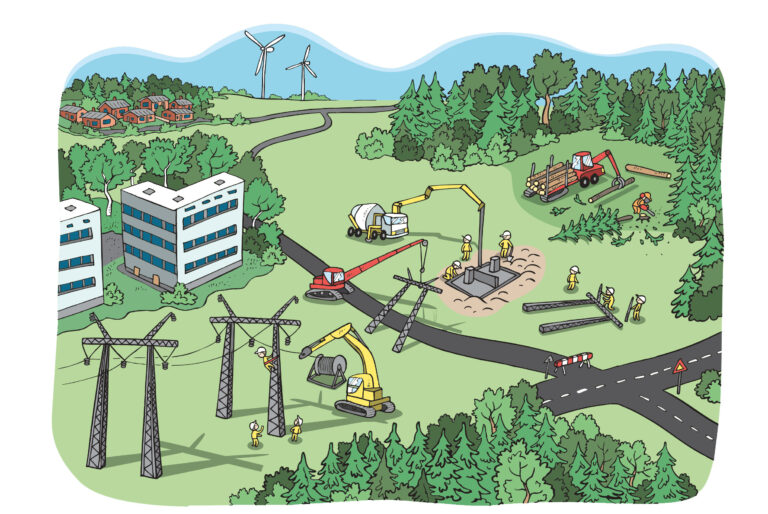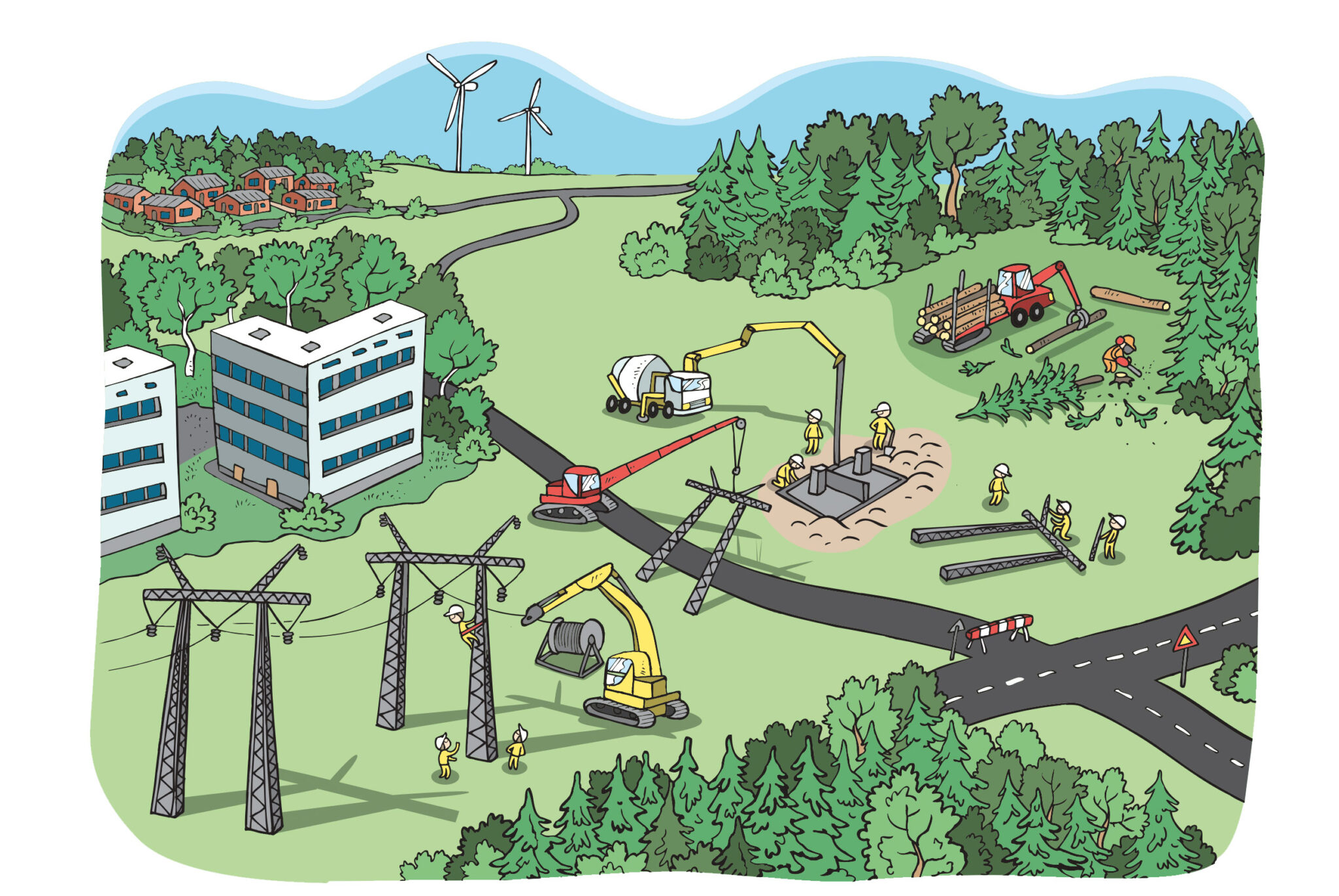Fingrid is a monopoly enterprise that discharges a statutory duty. The company has three internal processes for comprehensively managing these basic functions: ensuring transmission capacity, managing system security, and promoting electricity markets. These are also important for our customers, so could we provide a sufficiently customer-oriented perspective by involving customers in the development of our core processes?
In principle, customers do not pay to be included in Fingrid’s internal operations, such as improving the planning, construction or maintenance of the main grid. The nature of the service should be that customers receive help for their own needs. This takes place during various interactions that constitute a series of events – service processes or value chains. Although it is important for us to discharge our statutory duties properly, we are also able to generate significant added value by investing in value chains that are visible to customers and offering expert resources for them.

When we ask customers which types of services they feel that they receive from Fingrid, two top-level entities stand out: main grid services and electricity market services. Main grid services revolve around a network connection that enables a customer to supply energy to the grid or receive the necessary amount of high-quality electricity. The service is measured in terms of the number of megawatts, kilovolts or hertz at the connection point, as well as in the number of disturbances and outages. The core elements of electricity market services are the various marketplaces enabled by the power system, as well as the associated market rules. Customers want to trade electricity with consistent ground rules and no restrictions, also across national borders. As such, the success of the service is measured in euros – in other words, how extensively the connected power system is able to generate a financial benefit for the customers connected to it.
We aim to involve our customers in developing our services in various ways. Discussions must take place in the customer’s language. This means that we need to do more than just talking about our own processes or projects using the jargon we have invented for them. We also need to engage in wider-ranging discussions, as all services ultimately rely on interaction between people. We want our specialists to feel that they are involved in serving customers, and we want them to understand the types of services they are involved in providing, as well as what customers hope to receive from each service as a whole.
Although it is important for us to discharge our statutory duties effectively, it is at least as important to earn the trust of our customers each and every day and to help them succeed. This is particularly true right now, as our customers are investing staggering sums of money in the generation and consumption of clean electricity in the midst of an energy revolution and substantial uncertainty. Fingrid needs to have a solid overview of the big picture and a service-oriented approach, and we must advance towards a clean electricity system together, in accordance with Fingrid’s vision.
Jussi Jyrinsalo
Senior Vice President,
Grid Services and Planning
Fingrid






